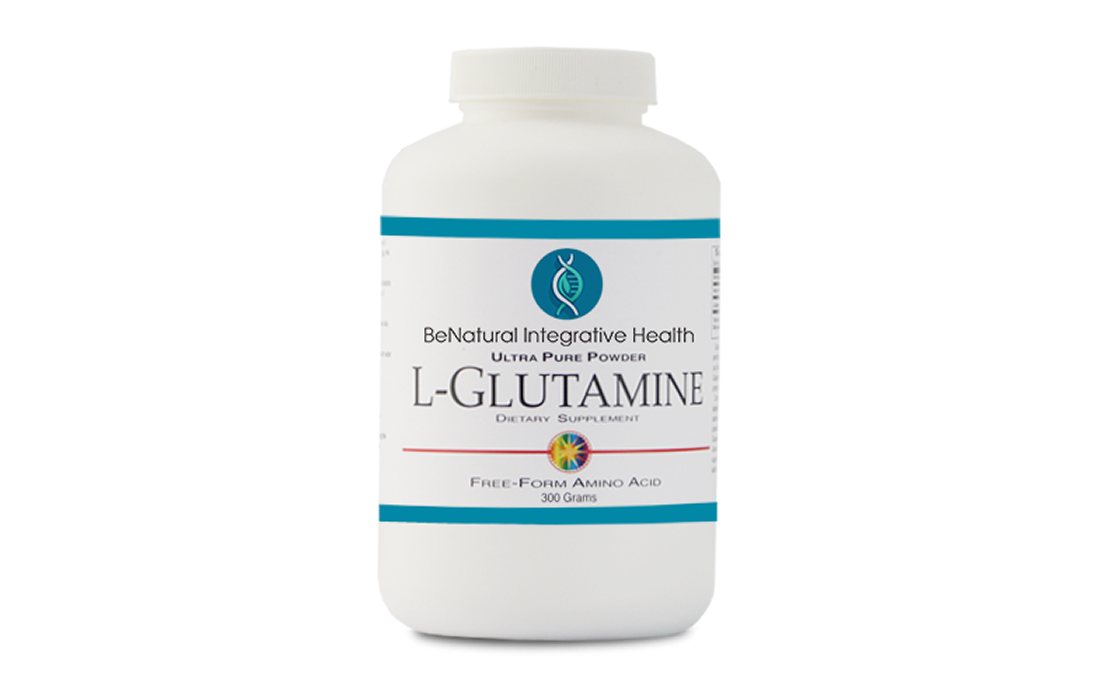Nutrition and Supplements
Health Benefits of Glutamine Supplementation
What is Glutamine?
Glutamine is the most abundant and versatile amino acid in the body, and is of fundamental importance to intermediary metabolism, interorgan nitrogen exchange via ammonia (NH3) transport between tissues and pH homeostasis.
In almost every cell, glutamine can be used as a substrate for nucleotide synthesis (purines, pyrimidines and amino sugars), NADPH, antioxidants and many other pathways involved in the maintenance of cellular integrity and function.
Like many other amino acids, it exists in 2 different forms: L-glutamine and D-glutamine. They are almost identical but have a slightly different molecular arrangement.
The form found in foods and supplements is L-glutamine. Some supplements list it as L-glutamine, but others use the broader term glutamine.
Foods Containing Glutamine
Glutamine is naturally found in many foods, It has been estimated that a typical diet contains 3 to 6 grams per day, but this is based on your specific diet. The largest amounts are found in animal products due to their high protein contents.
One study used advanced lab techniques to determine how much L-glutamine is found in various foods. Some examples are:
- Eggs: 4.4% (0.6 g per 100 g of eggs).
- Beef: 4.8% (1.2 g per 100 g of beef).
- Skim milk: 8.1% (0.3 g per 100 g of milk).
- White rice: 11.1% (0.3 g per 100 g of rice).
Although some plant sources, such as white rice, have a large percent of protein made up of glutamine, they have fairly low protein contents overall. Thus, meat and other animal products are the simplest ways to get high amounts of it.
Glutamine, Immune System and Exercise
Cells of the immune system, such as lymphocytes, neutrophils and macrophages utilize glutamine at high rates similar to or greater than glucose under catabolic conditions, such as sepsis, recovery from burns or surgery, malnutrition, as well as high intensity/volume physical exercise.
Glutamine is a critical fuel source for immune cells, including white blood cells and certain intestinal cells. Its blood levels can decrease due to major injuries, burns or surgeries and the body’s glutamine needs can become greater than its ability to produce it, which could lead the body to break down protein stores, such as muscle, to release more of this amino acid.
Currently, glutamine is routinely supplied as a component of clinical nutrition supplementation for pre and post operative patients, and also for many elite athletes to restore immune functions.
Prolonged exercise is associated with a decrease in the intramuscular and plasma concentrations of glutamine and it has been hypothesized that this decrease in glutamine availability could impair immune function.
Periods of very heavy training are associated with a chronic reduction in plasma concentrations of glutamine and it has been suggested that this may be partly responsible for the immunosuppression apparent in many endurance athletes.
Studies have also reported that glutamine supplements may improve health, decrease infections and lead to shorter hospital stays after surgery.
What’s more, they have been shown to improve survival and reduce medical costs in critically ill patients.
Intestinal Health
In the human body, the intestines are considered the largest portion of the immune system. This is because of the many intestinal cells with immune functions, as well as trillions of bacteria that live in your intestines and impact your immune health.
Glutamine is important as an energy source for intestinal and immune cells. It also helps maintain the barrier between the inside of the intestines and the rest of the body, protecting against leaky gut, which prevents harmful bacteria or toxins from moving from the intestines to the rest of the body.
Is important for the growth and maintenance of the cells in the intestine. Due to the major role of the intestines in the immune system, glutamine may benefit your overall immune health by supporting the intestinal cells.
Muscle Gain and Exercise Performance
Because of its known role as a building block of proteins, it has been tested as a supplement for improving muscle gain and exercise performance.
Some studies have found that glutamine supplements may decrease muscle soreness and improve recovery after intense exercise. One study found that glutamine or glutamine plus carbohydrates can help reduce a blood marker of fatigue during 2 hours of running.
How to Use Glutamine?
Since glutamine is an amino acid that is naturally produced in the body and found in many foods, there is no concern that it’s harmful in normal quantities.
It has been estimated that a typical diet may contain 3 to 6 grams per day, although this amount could vary based on the types and quantities of foods consumed.
When taken by mouth, studies have shown that it is safe to take glutamine in doses of up to 40 grams daily. Also, studies have shown that it is safe to give it intravenously in doses of up to 600 mg/kg of body weight daily.
If you want to get a high quality, pure L-Glutamine supplement, manufactured to meet the highest standards. Get yours today: https://shop.drramon.com/product/glutamine-powder-300-grams/
Sources:
Cruzat V, et al. Glutamine: Metabolism and Immune Function, Supplementation and Clinical Translation. Nutrients. 2018 Oct 23;10(11):1564. doi: 10.3390/nu10111564. PMID: 30360490; PMCID: PMC6266414.
Ramezani Ahmadi A, Rayyani E, Bahreini M, Mansoori A. The effect of glutamine supplementation on athletic performance, body composition, and immune function: A systematic review and a meta-analysis of clinical trials. Clin Nutr. 2019 Jun;38(3):1076-1091. doi: 10.1016/j.clnu.2018.05.001. Epub 2018 May 9. PMID: 29784526.
Gleeson M. Dosing and efficacy of glutamine supplementation in human exercise and sport training. J Nutr. 2008 Oct;138(10):2045S-2049S. doi: 10.1093/jn/138.10.2045S. PMID: 18806122.
Grant Tinsley, PhD. (2018, Jan 13) Glutamine: Benefits, Uses and Side Effects. Healthline. Retrieved from: https://www.healthline.com/nutrition/glutamine
https://www.webmd.com/vitamins/ai/ingredientmono-878/glutamine

